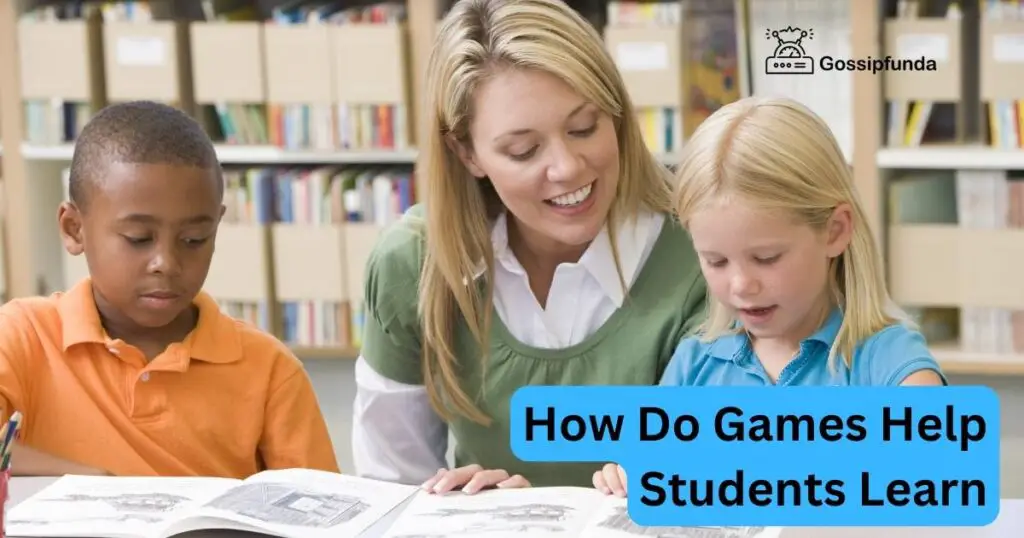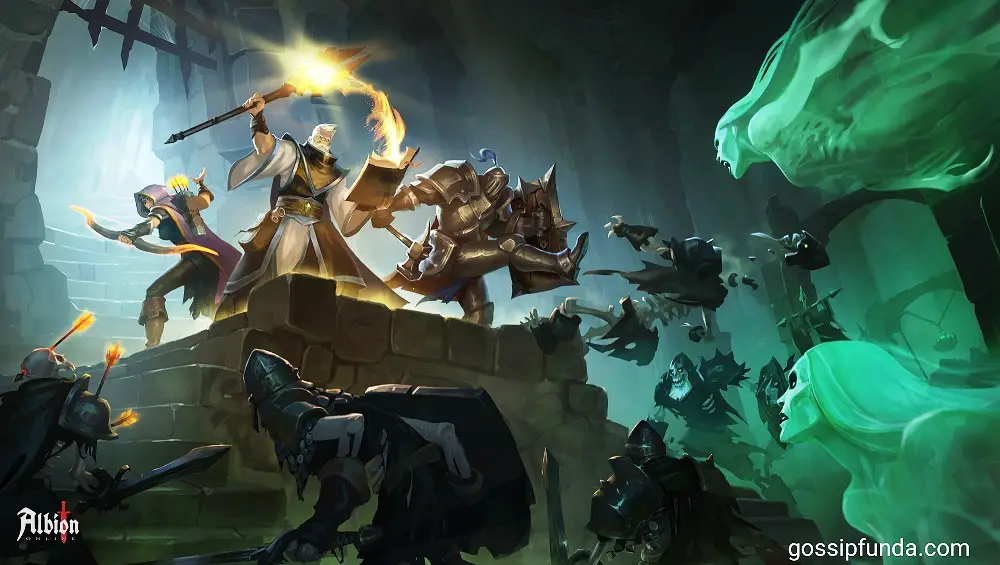Ready to dive into the captivating world of gaming and education? Hold tight! This isn’t just about fun and games. Surprisingly, there’s a riveting fusion of excitement and learning awaiting discovery. As the digital age unfolds, so does an educational revolution. Imagine a classroom where problem-solving meets play. The fusion sounds too good to be true, right? Yet, here we are, standing on the brink of a transformative era. By the end of this journey, you’ll view games not just as entertainment, but as powerful allies in learning. Let’s embark on this enlightening adventure together!
Engaging the Mind
The human mind is a vast landscape, rife with potential. When we speak of games engaging the mind, we touch upon an intricate interplay of cognitive processes, emotions, and motivation. Let’s delve deeper into this concept.

1. Cognitive Stimulation
Every game, be it digital or traditional, introduces a set of rules, challenges, and goals. To succeed, players must understand these parameters and strategize accordingly. This requires mental agility, critical thinking, and a good dose of creativity.
2. Emotional Engagement:
A captivating storyline or a challenging puzzle elicits emotions. The thrill of victory, the agony of a near-miss, the curiosity of what comes next—all these feelings keep a player hooked. These emotions ensure that the mind is constantly alert and involved, processing every bit of the game.
3. Skill Development:
Games often demand a variety of skills: quick reflexes, pattern recognition, logical reasoning, and more. As players progress, these skills are honed and refined. It’s like a gym workout, but for the brain!
4. Real-time Problem Solving:
Games are problem-solving environments by design. Whether it’s deciding the next move in a strategy game or choosing the right resources in a simulation, players are continually making decisions. These decisions often need to be made quickly, encouraging the mind to think on its feet.
5. Enhanced Focus and Concentration:
Games, especially those with time constraints or rapidly changing environments, require undivided attention. This fosters an increased ability to concentrate, not just within the game but extending to real-world tasks too.
6. Memory Boost:
Many games, especially role-playing games (RPGs), come with intricate plots, diverse characters, and complex worlds. Keeping track of these elements necessitates good memory skills. As players engage with such rich content, their memory muscles flex and grow stronger.
Fostering Collaboration
In a world growing ever more connected, collaboration emerges as an invaluable skill. Games, especially those that thrive on teamwork, have become instrumental in teaching this art. Let’s unwrap the layers of how games cultivate collaboration.
1. Team-Based Objectives:
Numerous games are designed around collective goals. Whether it’s teaming up to tackle a formidable opponent or constructing virtual cities, the task demands combined effort. Players quickly realize that solo endeavors often fall short in comparison to well-coordinated teamwork.
2. Communication is Key:
To navigate complex in-game scenarios, players must communicate. They share strategies, warn of threats, and celebrate successes. This interactive dialog fosters a culture of open communication, essential for real-world teamwork.
3. Leveraging Strengths:
Every player brings a unique skill set. Some might excel at strategy while others have impeccable reflexes. Games teach players to identify and leverage these individual strengths for the team’s advantage.
4. Handling Conflicts:
Not every game session is smooth sailing. Disagreements arise, and strategies may clash. Yet, resolving these conflicts swiftly is crucial to in-game success. This mirrors real-world scenarios where conflict resolution is vital for cohesive teamwork.
5. Shared Achievements and Failures:
Winning together strengthens bonds, while shared failures offer lessons. Games create environments where teams experience both highs and lows. This shared journey instills a sense of camaraderie and mutual respect among players.
6. Interdependence:
Many multiplayer games introduce roles – the healer, the warrior, the strategist. Each role is pivotal. Players learn the essence of interdependence, understanding that every team member’s contribution is crucial for collective success.
Making Learning Fun
Let’s face it: traditional learning can be boring. But games? They’re exciting. By integrating educational content into games, subjects become lively and engaging. Suddenly, math isn’t just numbers on a page; it’s a critical resource in a city-building simulation. History isn’t just dates and events; it’s a narrative-driven adventure.
Cultivating Persistence
Games often pose challenges. Players might fail multiple times. But here’s the magic: they try again. Through this, students learn resilience and persistence. They understand that failure is just a stepping stone to success. This mindset, once cultivated, can be applied to real-life challenges.
Instant Feedback Mechanism
Traditional learning involves waiting for test results. But games? They provide instant feedback. Make a mistake, and the game reacts. This immediate response lets students adjust their strategies quickly. They know right away what they’re doing right or wrong, enabling faster, more efficient learning.
Enhancing Memory Through Repetition
Memory, one of the most intricate faculties of the human mind, plays a pivotal role in our daily lives. Games, particularly their repetitive elements, are like unassuming tutors that bolster this vital cognitive function. Let’s delve into the nuances of how repetition in games amplifies memory.
- Habitual Learning: As players navigate through game levels, they often encounter repeated challenges. Over time, solutions to these challenges become habitual, etching them into the player’s memory.
- Pattern Recognition: Games, especially puzzles and strategy games, thrive on patterns. Recognizing these patterns, often through repetition, trains the brain to recall sequences and tactics more efficiently.
- Incremental Progression: Many games employ a tiered difficulty approach. As players conquer one level, the subsequent one becomes a tad more challenging. This gradual increase, paired with repetitive tasks, solidifies the learning process.
- Muscle Memory: Ever noticed how initially complex game controls become second nature after a while? That’s muscle memory in action. Repetitive use of specific controls reinforces motor skills, making them almost reflexive.
- Reinforcing Narrative Elements: Story-driven games often reiterate plot points, character backgrounds, or lore. This repetition helps players remember intricate story details, enhancing their immersion in the game’s universe.
- Trial and Error: The freedom to make mistakes and retry is a cornerstone of many games. Through repeated attempts, players learn what works and what doesn’t, cementing successful strategies in their memory.
Conclusion
Games aren’t just about entertainment. They’re powerful learning tools, shaping our students in surprising ways. From fostering collaboration to making learning fun, games are revolutionizing education. As we embrace this shift, we prepare our students not just for exams but for life’s myriad challenges.
FAQs
They’re games designed specifically to teach users about certain subjects, skills, or concepts.
Yes! Games can make complex topics engaging, boosting retention and understanding.
Games require attention to detail, enhancing concentration and sharpening the mind.
Absolutely. Many games present challenges that nurture critical thinking and strategy.
Prachi Mishra is a talented Digital Marketer and Technical Content Writer with a passion for creating impactful content and optimizing it for online platforms. With a strong background in marketing and a deep understanding of SEO and digital marketing strategies, Prachi has helped several businesses increase their online visibility and drive more traffic to their websites.
As a technical content writer, Prachi has extensive experience in creating engaging and informative content for a range of industries, including technology, finance, healthcare, and more. Her ability to simplify complex concepts and present them in a clear and concise manner has made her a valuable asset to her clients.
Prachi is a self-motivated and goal-oriented professional who is committed to delivering high-quality work that exceeds her clients’ expectations. She has a keen eye for detail and is always willing to go the extra mile to ensure that her work is accurate, informative, and engaging.


